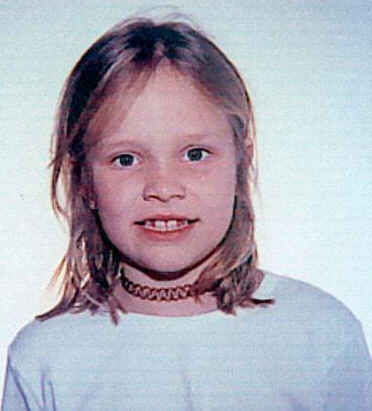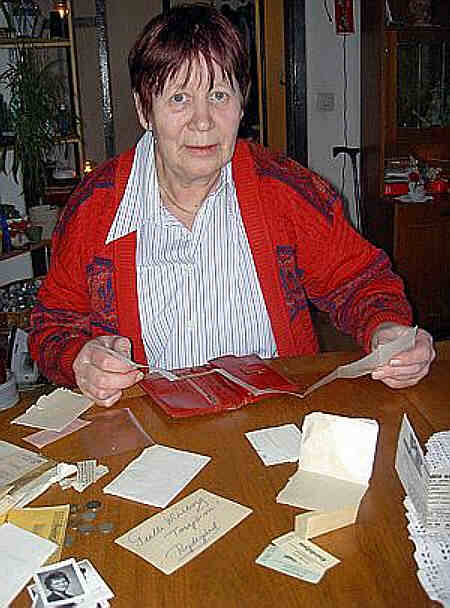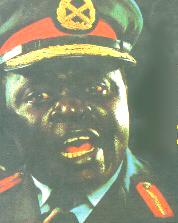^
Deaths which occurred on a February
02:
2004 Some 80 persons, including
a 2-year-old girl, in Selcuklu, Konya province, Turkey, after the 20:15
collapse of an 11-story building down to 2-story level. It had some 140
residents in 37 apartments. Some of the deaths occur in the following days
among those trapped under the debris, while some persons are rescued, including
on 08 February 2004 Muhammet Kalem, 16, whose father had escaped just before
the collapse, but whose mother and brother are among the dead.
2004
Seven hadjis, from injuries suffered the previous day at the stoning
of the devil ritual near Mecca, Saudi Arabia, in stampede in which 244 died
before them.
2004 A Hamas gunman; and Mujdi al-Khatib; and Yasser
Abu al-Aesh, and his brother; in Israeli pre-dawn attack, with
tanks and helicopters, on the Rafah refugee camp in the Gaza Strip. Al-Khatib,
al-Aqsa Martyrs Brigades' top field commander in the camp, and the Hamas
gunman are killed by the Israeli heavy machinegun fire at the start of the
attack. Then Israeli troops go to the home of al-Aesh, a senior local leader
of the Islamic Jihad group who lost his legs and an arm and four comrades
a year earlier when a tank shell hit his rocket-firing squad in Rafah; he
belonged to another group, the Popular Resistance Committees, at the time.
If the Israeli army is to be believed, they killed al-Aesh when he used
his remaining arm to throw a grenade at the soldiers who wanted merely to
arrest him; and they killed his brother when he interfered. The only Israeli
casualty in the whole attack on the refugee camp is one soldier lightly
wounded.
2004 Israeli Givati Brigade soldiers Staff
Sgt. Elon Yaakov Horowitz, from the enclave Moshav Nov
in the Golan, and Staff Sgt. Shay Indeshoh Abebeh, from
Kiryat Motzkin, during pre-dawn military exercises in the occupied Syrian
Golan Heights. They are sitting in the front seat of a jeep stuck on a dirt
road, when an armored personnel carrier crashes into it. Abebeh had immigrated
from Ethiopia as part of Operation Solomon in 1991.
 2003
Some 50 persons by explosion at 12:30 in Lagos Island district
of Lagos, Nigeria, which collapses the building in which three floors of
apartments were above the ground floor Prudent Bank. Some 40 are injured. 2003
Some 50 persons by explosion at 12:30 in Lagos Island district
of Lagos, Nigeria, which collapses the building in which three floors of
apartments were above the ground floor Prudent Bank. Some 40 are injured.
2003 Harold
Ginsberg, 85, of pneumonia
(not specified whether viral
or bacterial),
US microbiologist, pioneer in the study of viruses.
2002 Danielle
van Dam, 7, [photo >] murdered after being kidnapped
from her San Diego home the previous night [during which her father, Damon
van Dam, 36, had smoked marijuana with his wife and two of her women friends,
then had sexual fun with them including adultery with one of the women].
After weeks of searching and wide publicity, Danielle' body would be found
on 27 February 2002. David Westerfield, 50, who lives two doors down from
the van Dams [and who was at a bar with the same three women earlier in
the evening], would be arrested on 22 February 2002 on suspicion of being
the kidnapper-murderer. He would go on trial on 05 June 2002, be convicted
on 21 August 2002 and, on 03 January 2003, sentenced to death.
2002
Talab Mansur (aka Abu Barera), Rashid Aziz, Abu Isha, and Abu Salama,
all 4 Lashker- e-Toiba militants infiltrators from Pakistan, in a gunbattle
with Indian security forces at Surankote in Poonch district, Jammu-Kashmir.
The four were reportedly involved in the recent massacre of 11 people in
in Mendhar village of Jammu region..
2002 An Indian security
jawan and Haq Nawa, recruiter for the Pakistan-based Lashker- e-Toiba
terrorrists, during Indian army search operations at Chimar village in Anantnag
district, Jammu-Kashmir.
2002 Five Nepalese killed
by Indian soldiers at Salpara village in western Assam's Kokrajhar district.
The army says that those killed were "hardcore militants" of the outlawed
separatist outfit National
Democratic Front of Bodoland (NDFB).
The Army's version is rejected by local Nepalese and doubted by magistrates.
A number of Nepalese, most of them dairy farmers, have been settled in the
area, which borders Nepal, for several decades. India has open borders with
Nepal and citizens of both countries are free to travel without passports.
The mostly Christian NDFB is fighting for an independent tribal homeland
and for writing the Bodo language in Roman characters (instead of Devnagri
script) and currently operates out of fortified bases inside Bhutan to carry
out their hit-and-run guerrilla strikes on Indian federal soldiers in Assam.
More than 10'000 persons have lost their lives to insurgency in Assam since
1980.
1996 Teacher and two students shot by a 14-year-old
boy with a hunting rifle, at Frontier Junior High School in Moses
Lake, Washington.The boy was inspired by the plot of a Stephen King novel
and by the movie Natural Born Killers. A third student was injured.
1994 Al menos 200 personas al descarrilar un tren en Kasai,
Zaire.
1987 Samuel “Jacques” Azar and Dr. Moshe
Marzouk, executed in Cairo, Egypt, as Jewish spies.
1987:
79 alumnas en dos escuelas de Mianeh (Irán), en un ataque aéreo
iraquí.
1979 Sid Vicious, of a heroin overdose, in
New York, bassist for the punk group the Sex Pistols. The previous day,
he had been released from prison on bail after his arrest on in October
1978 for stabbing to death his girlfriend, go-go dancer Nancy Spungeon,
20.
1974 Imre
Lakatos, Jewish Hungarian English mathematician born Imre Lipschitz
on 09 November 1922.
1971 Yuriy
Dmitrievich Sokolov, Ukrainian mathematician born on 26 May
1896.
1970 Bertrand
Arthur William Russell 3rd earl of Kingston Russell, viscount
Amberley, British mathematician and philosopher, born on 18 May 1872. He
is best known for his work on mathematical logic, and for his social and
political campaigns, including for pacificism and nuclear disarmament. He
received the 1950 Nobel Literature Prize.
1967 Robert Julius
Oppenheimer, físico estadounidense.
1965 George
Neville Watson, English mathematician born on 31 January 1886.
1955 José Antonio Remón Cantera, presidente de Panamá.
1950 Constantin
Carathéodory, German mathematician born on 13 September
1873. Carathéodory made significant contributions to the calculus of variations,
the theory of point set measure, and the theory of functions of a real variable.
^
1940 Day 65 of Winter War: USSR aggression
against Finland.
More deaths due to Stalin's desire to grab Finnish territory.
Brazil sends Finland 10'000 sacks of coffee
Karelian Isthmus: Soviet
forces continue their assault on the 3rd Division's main defensive
position.
The Soviet Air Force
continues its bombing raids as part of the general offensive on the
Isthmus.
Eastern Isthmus: a patrol
of seven enemy paratroopers lands on the frozen Lake Pyhäjärvi and
is wiped out.
Northern Finland:
the Soviet 54th Division, surrounded in Kuhmo, is attempting to break
out by attacking in a number of areas.
Another enemy division is brought in to support the attacks.
Ladoga Karelia: 92 enemy aircraft attack
Sortavala in five waves, killing 15 persons and injuring 44 others;
the Lutheran church is among the buildings destroyed in the attack.
Pori: enemy bombers hit a bomb splinter
shelter, killing 11 women and 3 men. Altogether 21 people are killed
in the raid.
Lake Saimaa: Lieutenant
Fritz Rasmussen, a Danish volunteer pilot, is killed when enemy aircraft
shoot down his Fokker FR-81 while he is on a defensive flight near
Rauha on the shores of Lake Saimaa.
Abroad: the Holmenkollen skiing stadium in Oslo puts on a benefit
event in aid of Finland. The main attractions are the oft-crowned
Olympic speed-skating champion and World Champion Clas Thunberg and
the ski-jumpers Lauri Valonen and Niilo Toppila.
Brazilian President Getulio Vargas announces that Brazil is to send
Finland a gift of 10'000 sacks of coffee.
The Finnish Government presents its opening position for peace talks
in response to the terms of negotiation presented by the Soviet Union.
The response is communicated to the Soviet Union via the Swedish Foreign
Ministry.
The Soviet Ambassador
in Stockholm, Madame Alexandra Kollontai, indicates that the Soviet
Union cannot give up its demand for bases in Finland.
The British War Cabinet rejects a plan for a naval blockade of the
Soviet Union.
^
Brasilia lahjoittaa Suomelle 10'000 säkkiä
kahvia Talvisodan 65. päivä, 02.helmikuuta.1940
Kannaksella neuvostojoukkojen
hyökkäykset 3. Divisioonan puolustusasemia vastaan jatkuvat.
Vihollisen Kannaksen yleishyökkäykseen
liityvät ilmapommitukset jatkuvat.
Itä-Kannakselle Pyhäjärven jäälle pudotettu vihollisen seitsemän
laskuvarjomiehen partio tuhotaan.
Kuhmossa saarrettu 54. neuvosto-divisioona hyökkää usealla kaistalla.
Vihollinen keskittää hyökkäävän
divisioonansa avuksi toisen divisioonan.
92 viholliskonetta hyökkää viitenä eri aaltona Sortavalaan surmaten
15 ihmistä ja haavoittaen 44:ää, mm. Sortavalan luterilainen kirkko
tuhoutuu.
Porissa vihollinen
pommittaa sirpalesuojaa, 11 naista ja 3 miestä saavat surmansa. Kaikkiaan
Porissa kuolee tässä pommituksessa 21 ihmistä.
Tanskalainen vapaaehtoinen lentäjä, luutnantti Fritz Rasmussen saa
surmansa, kun viholliskoneet ampuvat hänen ohjaamansa Fokker FR-81-koneen
alas torjuntalennolla Saimaalla Rauhan lähistöllä.
Holmenkollenin hiihtostadionilla järjestetään juhla Suomen hyväksi.
Tilaisuuden pääesiintyjät ovat moninkertainen pikaluistelun olympiavoittaja
ja maailmanmestari Clas Thunberg sekä mäkihyppääjät Lauri Valonen
ja Niilo Toppila.
Brasilian
presidentti Getulio Vargas ilmoittaa, että Brasilia lahjoittaa Suomelle
10'000 säkkiä kahvia.
Suomen
hallitus esittää ensimmäiset rauhan-neuvotteluperusteet vastauksessaan
Neuvostoliiton neuvotteluehtoihin. Vastaus toimitetaan Ruotsin ulkoministeriön
kautta Neuvostoliitolle.
Neuvostoliiton
suurlähettiläs Tukholmassa, rouva Aleksandra Kollontai ilmoittaa,
että Neuvostoliitto ei voi luopua vaatimuksestaan saada tukikohtia
Suomesta.
Englannin sotakabinetti
hylkää Neuvostoliiton merisaarto-suunnitelman.
^
Brasilien donerar 10'000 säckar kaffe till Finland
Vinterkrigets 65 dag, den 02 februari 1940
Sovjettruppernas attacker mot den 3. Divisionens försvarsställningar
fortsätter på Näset.
Flygbombningarna
i anslutning till den allmänna offensiven på Näset fortsätter.
En rysk patrull bestående av sju fallskärmssoldater
landar på Pyhäjärviisen på Östra Näset. Patrullen likvideras.
Den i Kuhmo omringade ryska 54. Divisionen
anfaller på flera sektorer.
Fienden
förflyttar en annan division för att stöda den anfallande divisionen.
92 ryska plan anfaller Sordavala i
fem separata omgångar. 15 personer dödas och 44 skadas. Bland annat
Sordavala lutherska kyrka förstörs.
I Björneborg bombar fienden ett splitterskydd, 11 kvinnor och 3 män
omkommer. I Björneborg dödas inalles 21 personer vid den här räden.
Den danske frivillige piloten, löjtnant
Fritz Rasmussen omkommer då ryska plan skjuter ner hans Fokker FR-81-plan
under ett avvärjningsflyg vid Saimen nära Rauha.
På skidstadion vid Holmenkollen arrangeras en fest för Finlands väl.
På festen uppträder den mångfaldiga olympiasegraren och världsmästaren
Clas Thunberg och backhopparna Lauri Valonen och Niilo Toppila.
Brasiliens president Getulio Vargas
meddelar att Brasilien donerar 10'000 säckar kaffe åt Finland.
Finlands regering framför de första
fredsförhandlingsgrunderna i sitt svar på Sovjetunionens förhandlingsvillkor.
Svaret sänds till Sovjetunionen via Sveriges utrikesministerium.
Sovjetunionens ambassadör i Stockholm,
fru Alexandra Kollontaj meddelar att Sovjetunionen inte kan ge efter
i sitt krav på baser i Finland.
Det engelska krigskabinettet avvisar Sovjetunionens plan på sjöblockad
. |
1934 Augusto César Sandino, asesinado en Managua cuando
se dirigía a firmar la paz.
1923 Manuel Antonio Martévez
Murguía, historiador, presidente de la Academia Gallega.
1922 William Desmond Taylor, 58, film director, in Los
Angeles, from a bullet in the back. bungalow, probably by Charlotte Selby,
who disapproved of the love affair between her teenaged daughter Mary Miles
Minter, with Taylor. However some speculate that drug dealers hired a hit
man to kill Taylor for sending another girlfriend, Mabel Normand, to a cocaine
addiction treatment center.
1920 Pal Szinyei-Merse,
Hungarian artist born on 04 July 1845. — more
1911 Hugues
Charles Robert Méray, French mathematician born on 12
November 1835.
1907 Dmitri Ivanovich Mendelejev,
72, Russian chemist (Periodic Table)
1895 Willem Johannes
Martens, Dutch artist born on 14 August 1838. — Relative?
of Willem
Martens [1856-1927] ?
1874 Julius Adam
I, German artist born on 26 January 1826.
1789
Armand-Louis Couperin, 63, French composer/organist (Notre Dame)
1776 Francis Hayman, English painter and illustrator
born in 1708. — MORE
ON HAYMAN AT ART “4” FEBRUARY
with links to images.
1769 Clement
XIII [Carlo Rezzonico], 75, Pope (1758-1769)
1704 Guillaume
François Antoine marquis de l'Hôpital, Parisian mathematician
born in 1661. L'Hôpital's fame is based on his book Analyse des infiniment
petits pour l'intelligence des lignes courbes (1696) which was the
first text-book to be written on the differential calculus. In this book
is found the rule, now known as L'Hôpital's
rule, for finding the limit of a rational function whose numerator and
denominator tend to zero at a point: the limit is the same as the limit
of the ratio of the derivatives of the numerator and of the denominator..
1685 Charles II King of England/Scotland/Ireland,
54, (1660-1685)
1640 (burial) Hendrick Corneliszoon Vroom,
Haarlem Dutch painter and draftsman, born in 1563. — MORE
ON VROOM AT ART “4” FEBRUARY
with links to images.
1612 Clavius,
mathematician.
1597 Lucas van Valkenborch, Flemish
artist born sometime from 1530 to 1535.
1594 Giovanni Perluigi
da Palestrina, 68, Italian composer.
1590 Santa Catalina
de Ricci.
1491 Martin Schongauer, German
painter born between 1435 and 1450. — MORE
ON SCHONGAUER AT ART “4” FEBRUARY
with links to images.
1435 Johanna II
Lawless, 61, Queen of Naples (1414-1435)
1032 Rudolf III
last independent king of Burgundy.
0619 Saint
Lawrence, 2nd archbishop of Canterbury (604-619) |
 On
a February 02:
On
a February 02:  2004
Gilli got back her wallet!
2004
Gilli got back her wallet! 

 2003
Some 50 persons by explosion at 12:30 in Lagos Island district
of Lagos, Nigeria, which collapses the building in which three floors of
apartments were above the ground floor Prudent Bank. Some 40 are injured.
2003
Some 50 persons by explosion at 12:30 in Lagos Island district
of Lagos, Nigeria, which collapses the building in which three floors of
apartments were above the ground floor Prudent Bank. Some 40 are injured.